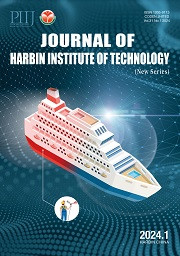| Author Name | Affiliation | Postcode | | Jiangang Li* | School of Mechanical Engineering and Automation, Harbin Institute of Technology, Shenzhen, Shenzhen 518055, China | 150001 | | Xiaodong Wang | KEJIE Machinery Automation Co., Ltd., Jiangmen 529030, China | 150001 | | Miaosen Chen | School of Mechanical Engineering and Automation, Harbin Institute of Technology, Shenzhen, Shenzhen 518055, China | 150001 | | Yiming Ma | School of Mechanical Engineering and Automation, Harbin Institute of Technology, Shenzhen, Shenzhen 518055, China | 150001 |
|
| Abstract: |
| The repetitive processing and large quantity of single product represented by 3C products are urgently needed. However, for current processing operations, previous processing data has not been used in the optimization of control input. In order to utilize previous processing data to facilitate the next process and avoid adverse effects caused by repetitive disturbance and noise, the idea of iterative learning was introduced to improve the accuracy of machining. On the control level, since it is difficult to obtain high accuracy by traditional feedback control when faced with complex trajectories, an open-loop iterative learning controller and a position loop feedback controller were introduced, which worked fast with good convergence effects. Aiming at reducing the influence of accidental error, step type iterative learning was put forward. The iteration mechanism was stopped when the accuracy converged to the allowable range so as to reduce computational complexity, store the current iterative part of the control input, and make constant value compensation. However, in simulation and experiment, it was found that after superposition of the iterative learning controller, the phenomenon of partial divergence of the system tracking error occurred. Therefore, the speed and acceleration characteristics of input trajectories in time domain and frequency domain were analyzed. High-frequency noise was introduced in frequency domain, which was found to be the cause of the abovementioned phenomenon, and high-frequency components were filtered to solve the problem. To further improve the accuracy of convergence and avoid filtering effective high-frequency information in some area, a switchable filter based on the analysis of the frequency characteristics of input trajectory was proposed. Through SIMULINK simulation and dSPACE experimental verification, it was proved that the iterative learning controller of modifying controlled quantity and filter based iterative learning control method are effective. |
| Key words: iterative learning control ladder iterative learning switchable iterative mechanism filter design switchable filter design |
| DOI:10.11916/j.issn.1005-9113.2019024 |
| Clc Number:TG659 |
| Fund: |





